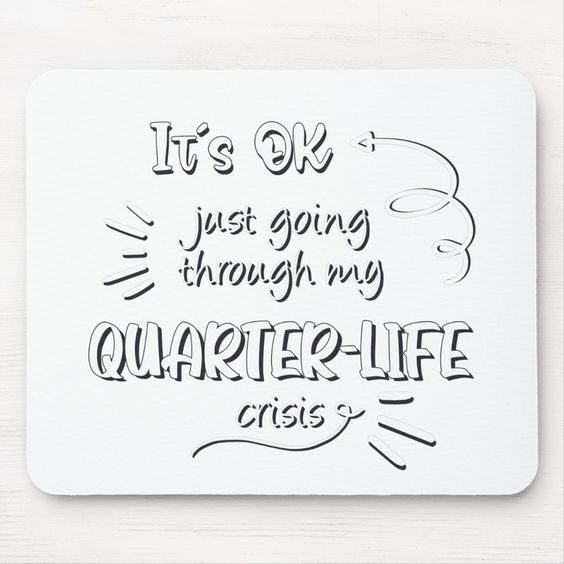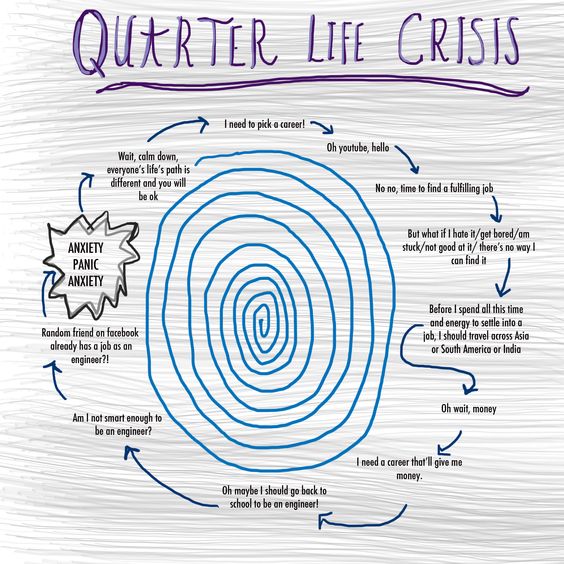Adulting 101
What To Do When You Find Out She’s Pregnant
Published
1 year agoon

Finding out that your girlfriend, sneaky link or even one-time hook-up is pregnant can be a life-altering moment filled with a mix of emotions. Running through a range of emotions in one go from fear to uncertainty It’s crucial to handle the situation with care, sensitivity, and responsibility regardless of what type of relationship was shared. But remember, no matter how much fear or panic you are going through, she’s going through a lot worse. You’ve never needed to be an empath more than you do now.
First Interaction: How to React
1. Stay Calm
Your initial reaction is critical. It’s natural to feel a surge of emotions—shock, fear, confusion—but try to stay calm. Take a deep breath and compose yourself. She is likely feeling just as overwhelmed, if not a lot more, and will need your support. So that initial reaction grounds her as it grounds you. Remember, you are going to be okay.
2. Listen Actively
Give her the space to express her feelings and thoughts without interruption. Listen to her concerns, fears, and hopes. Show empathy and understanding, and avoid jumping to conclusions or making immediate decisions. Don’t ask whether she’s sure it’s yours, or whether she’s sure the test is positive. Just listen.
3. Acknowledge Her Feelings
Acknowledge her emotions and validate them. Phrases like “I understand this is unexpected” or “It’s okay to feel scared and unsure” can help her feel heard and supported. I mean you both knew the risk with unprotected sex, so denial is only foolish. Acknowledge your own emotions as well.
How Not to React
1. Avoid Blame
Do not blame her or yourself for the situation. Statements like “How could you let this happen?” are unproductive and can cause further stress and hurt. Because what do you mean? This is a both of you situation.
2. Don’t Dismiss Her Feelings
Avoid dismissing or minimizing her feelings by saying things like “It’s not a big deal” or “We’ll figure it out later.” Her feelings are valid and need to be respected. Listen and respond as calmly as you can master, with as much understanding.
3. Don’t Make Rash Decisions
Avoid making any immediate decisions about the future. This is a significant moment that requires thoughtful consideration and discussion.
What to Say
1. Express Support
Let her know that you are there for her. Say something like, “I’m here for you no matter what,” or “We’ll get through this together,” or “You’re going to be okay”
2. Discuss Next Steps Together
Encourage an open discussion about the next steps. Ask questions like, “What do you think we should do?” or “How are you feeling about this?” If you are unable to decide, get professional help, visit the hospital and counsellor with her. Two heads ARE better than one.
3. Reassure Her
Provide reassurance about your commitment to working through this together. For example, “We’ll explore all our options and make the best decision together.” Remember that this decision is hers, but help as much as you can.
What to Do
1. Take Time to Process
Both of you need time to process the news. Take a few days to let the initial shock settle before making any major decisions. Don’t make any panic rush decisions that could endanger her or you further; either emotionally or physically.
2. Educate Yourselves
Learn about your options. This might include speaking with a healthcare provider, counsellor, or trusted family members. Understanding the implications of each option—parenthood, adoption, or abortion—will help in making an informed decision.
3. Communicate Openly
Maintain open and honest communication. Regularly check in with each other to discuss feelings, concerns, and thoughts as you navigate this situation. You have to be with her through it, whether physically or not. Knowing she’s not alone goes a long way.
4. Seek Professional Guidance
Consider seeing a counsellor or a healthcare professional together. They can provide valuable information, support, and guidance during this challenging time.
5. Plan for the Future
Once you’ve discussed and decided on a course of action, start planning for the future. If you decide to continue with the pregnancy, discuss financial, logistical, and emotional preparations. If you choose another option, seek support to navigate that process as well.
An unplanned pregnancy can be a confusing experience, but how you handle the initial reaction can set the tone for how you both move forward. Stay calm, supportive, and open to discussion. You might initially disagree with what the next steps are, but together, you handle it better. Avoid blame and rash decisions and seek professional guidance to make informed choices together. Remember, this is a journey that requires both of you to work as a team, offering each other understanding and support every step of the way. Regardless of whether you move on as a family or not. Remember, you are both going to be okay, breathe.
You may like


“Zoza”: A Story of Loyalty, Betrayal, and Redemption


Spotify Has Quietly Hiked Prices in Kenya


A Journey of Self-Discovery: Book Review of Educated by Tara Westover


Packed Fall 2024 Anime Lineup: What to Expect This Season


Infinix’s Hot Launch; The All New Hot 50 Series is Here


Walker Town Presents A Star-Studded Lineup Featuring Lauryn Hill, Nyashinski And Rema
Adulting 101
Emoji Users May Be More Emotionally Intelligent, Study Finds
Published
7 months agoon
December 15, 2024
Research reveals that individuals who frequently use emojis in their text conversations with friends and family tend to have a higher level of emotional intelligence.

These expressive icons may be more than just playful additions to messages—they can reflect a deeper connection with one’s feelings.
The study, conducted in the U.S., surveyed 320 participants about their backgrounds and messaging habits. Findings indicated that those confident in using emojis demonstrated a strong capacity for understanding and managing emotions. Interestingly, while women were more likely to use emojis, individuals who identified as anxious or private were less comfortable incorporating them into their communication.
Dr. Simon Dubé, a psychologist from the Kinsey Institute at Indiana University, emphasized the significance of these digital tools in modern communication. “The way we interact during virtual conversations reveals more about ourselves than we might think,” he explained. “Emojis are not just smiley faces or heart icons—they are tools for conveying meaning and enhancing communication.”
According to Dr. Dubé, emojis play a vital role in bridging the gap created by the lack of non-verbal cues in virtual exchanges. “They meet the need for non-verbal support, helping to reduce uncertainty, adjust the tone, or increase the clarity of a message,” he noted.
This research highlights the evolving ways we adapt to digital communication, suggesting that emojis are more than simple decorations—they’re essential tools for emotional expression and connection in a text-driven world.

Do you feel like life’s throwing you one too many curveballs lately? Welcome to your quarter-life crisis—well, I wouldn’t call it that, more like a plot twist!

If you’re in your 20s or early 30s, chances are you’ve felt that unsettling mix of confusion, anxiety, and “What am I even doing with my life?” vibe. But hey, it’s not as grim as it seems. This phase, though overwhelming, is more of a growth spurt for your mind and soul.
Here’s How to Navigate this Rollercoaster with Style
1. Embrace the Chaos, Don’t Fight It
First off, let’s normalize the chaos. Life’s not a straight path, and the sooner you accept the zig-zags, the smoother your ride will be. Remember, everyone’s story is different, so don’t compare your journey to someone else’s Instagram highlight reel.
This period of uncertainty? It’s just the universe’s way of nudging you towards something bigger and better.
2. Reflect and Redirect
Feeling lost? That’s your cue to pause and reflect. Ask yourself the deep questions: What do I really want? What makes me happy? It’s okay if you don’t have all the answers right away.
Start small—maybe it’s time to pivot in your career, explore a new hobby, or even take a solo trip to clear your mind.
The goal is to redirect your energy towards what genuinely matters to you.
3. Surround Yourself with Positivity

Your vibe attracts your tribe, so keep it positive. Hang out with people who uplift you, not those who drain your energy. And don’t forget to celebrate the small wins—whether it’s finally nailing that work project or just getting out of bed when you didn’t feel like it. Positivity breeds more positivity, and that’s what you need right now.
4. Trust the Process
Trust me, everything you’re going through is preparing you for something amazing. You might not see it now, but hindsight’s 20/20, right? So, trust the process and keep moving forward, even if it’s just one baby step at a time. Your plot twist? It’s leading to a grand finale that’ll be worth the wait.
A quarter-life crisis isn’t the end of the world; it’s just a chapter in your story. Embrace the uncertainties, learn from them, and use this time to craft a life that’s true to who you are. After all, you’re the author of your own story and this plot twist? It’s just the beginning of something epic.

Adulting 101
Career Hopping: The Emotional Cost of Constant Reinvention
Published
11 months agoon
August 14, 2024
Remember the days when people would stick to one job for life? Yeah, that’s a distant memory for most of us. These days, switching careers every few years seems to be the norm, especially among millennials and Gen Z. It’s exciting, keeps things fresh, and opens up new opportunities. But beneath the surface, career hopping can take an emotional toll that’s often overlooked.
So, what’s the real cost of constantly reinventing ourselves in the professional world. Let’s face it—career hopping is both thrilling and terrifying. On one hand, it’s all about exploring new opportunities, challenging yourself, and refusing to settle for anything less than what you deserve. On the other hand, it’s a rollercoaster of uncertainty, where each leap into the unknown comes with its own set of risks and emotional challenges.
One of the biggest pressures driving career hopping is the fear of missing out (FOMO). We’re bombarded with success stories on social media—people landing dream jobs, starting businesses, and seemingly living their best lives. It’s hard not to compare yourself and wonder if you’re falling behind. This can push us to jump from one job to another, always in search of the next big thing, but never truly settling into a role.
But here’s the thing: constantly changing jobs can be exhausting. Each new position comes with a learning curve—new skills to master, new colleagues to understand, and a new work culture to adapt to. It’s a lot to take on, and the stress can quickly add up. The excitement of a fresh start can be overshadowed by the anxiety of having to prove yourself all over again.Moreover, there’s the emotional impact of leaving behind teams and projects that you’ve invested in. It’s not just about the work; it’s about the relationships you build along the way. Saying goodbye to colleagues who’ve become friends can be tough, and starting over in a new environment can feel lonely at times.So, how can we navigate the ups and downs of career hopping without losing ourselves in the process? Here are some tips:
– Reflect on Your Goals: Before making a move, take some time to reflect on your long-term career goals. What do you really want to achieve? Will this new role bring you closer to that goal, or are you just chasing the next shiny thing?
– Embrace Lifelong Learning: Instead of hopping from one job to another, consider ways to grow within your current role. Lifelong learning—whether through courses, certifications, or new projects—can help you stay challenged and fulfilled without the need to constantly change jobs.
– Build a Support System: Career hopping can be emotionally draining, so it’s important to have a support system in place. Whether it’s friends, family, or mentors, having people to talk to about your experiences can make a huge difference.
– Prioritize Mental Health: Don’t forget to take care of your mental health. The stress of career changes can take a toll, so make sure you’re practicing self-care, whether that’s through meditation, exercise, or simply taking time to relax.In the end, career hopping isn’t inherently good or bad—it’s about how you approach it.
By being mindful of the emotional impact and making decisions that align with your long-term goals, you can enjoy the benefits of career hopping without burning out. After all, the journey is just as important as the destination.

Meghan Markle Delays Netflix Series Premiere Due To LA Wildfires

Satire Meets Culture On New Comedy Series ‘A Very Kenyan Sketch Show’

Netflix Set To Debut A Gripping Kenyan Drama Series ‘Mo-Faya’
Trending

 Entertainment2 years ago
Entertainment2 years agoKenyan Movie Disconnect: The Wedding Planner Is Now Streaming On Netflix

 A Chat With4 years ago
A Chat With4 years agoA MOMENT WITH SHARON WENDO, FOUNDER OF EPICA JEWELLERY

 A Chat With3 years ago
A Chat With3 years agoFind out why ‘mutura is not a street food’ as Wanjira Puts it!

 A Chat With3 years ago
A Chat With3 years agoAre men allowed to cry?

 A Chat With3 years ago
A Chat With3 years agoA chat with one of the biggest female Djs right now, Dj Redbone

 A Chat With3 years ago
A Chat With3 years agoKenyans make the best music in the world, Ayrosh

 A Chat With3 years ago
A Chat With3 years agoA chat with Atieno: A young radio personnel doing her thing behind the mics

 A Chat With2 years ago
A Chat With2 years agoIMA: A Tale of Music, Love & Law | The Vibe Chat






























